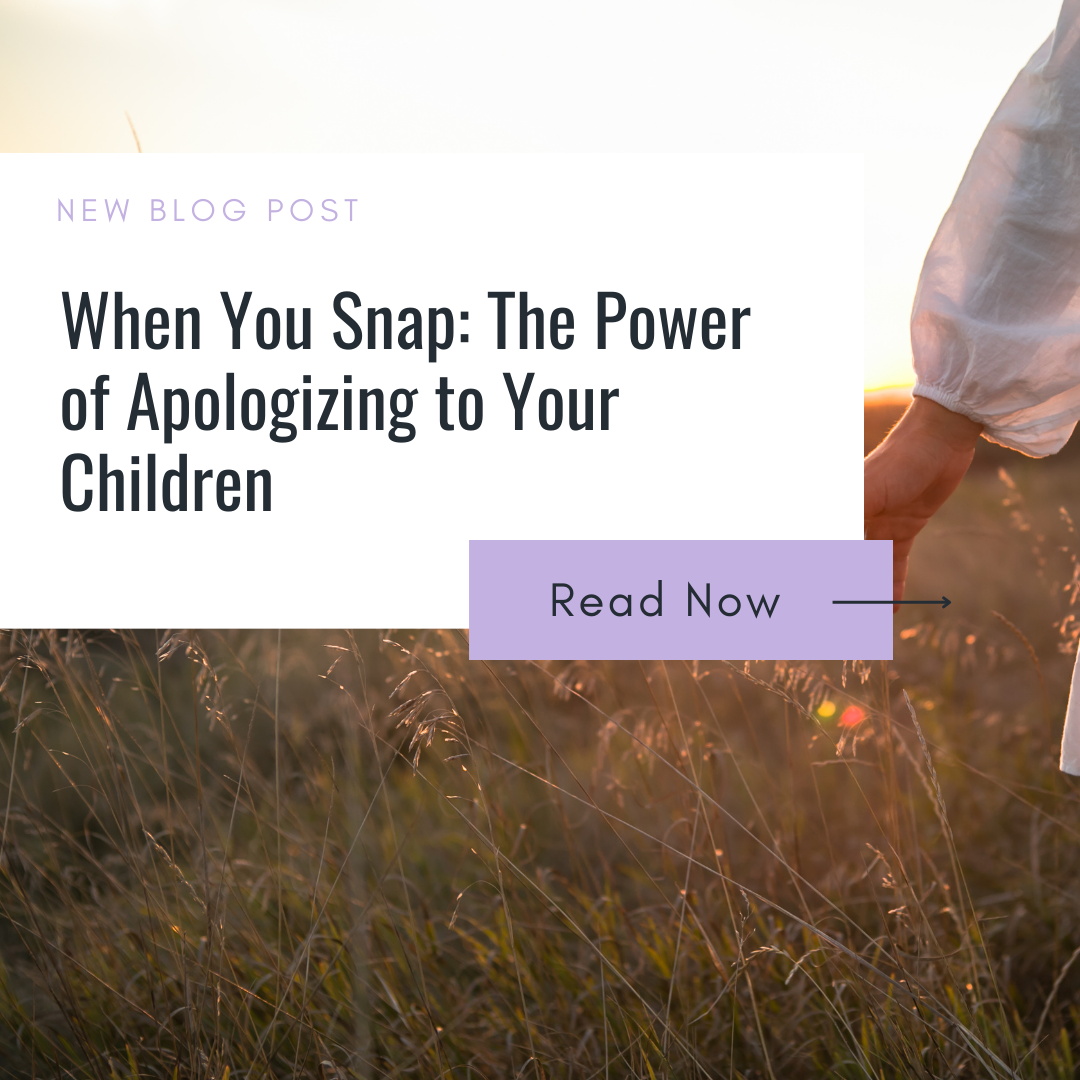Picture this: You’re driving home after a long day, traffic is frustrating, and your four-year-old is in the backseat asking endless questions about buildings you can’t even see clearly. Someone in front of you isn’t paying attention, so you honk your horn. Your child’s questions become more insistent, then turn to whining when you can’t give them the answers they want. And then it happens—you snap. “I don’t know what you’re talking about!” comes out harsher than you intended. Immediately, you see your little one’s face crumple, tears start flowing, and your heart sinks.
If this scenario sounds familiar, you’re not alone. Every parent has moments where stress, frustration, or exhaustion gets the better of us, and we respond to our children in ways we immediately regret. The question isn’t whether these moments will happen—they will. The question is what we do next.

The Weight of That Moment
When we snap at our children, especially our young ones who are simply being curious or expressing their needs, the impact goes beyond the immediate tears. Children are incredibly perceptive and sensitive to our emotional states. They look to us not just for answers and guidance, but for emotional safety and security. When we react harshly, even briefly, it can shake that sense of safety.
But here’s what many parents don’t realize: these moments of imperfection can actually become powerful opportunities for connection and growth—if we handle them with intention and grace.

Why Apologizing to Children Matters
Many of us grew up in an era where parents rarely, if ever, apologized to their children. The prevailing wisdom was that apologizing would somehow undermine parental authority or make us appear weak. But child development research tells us something very different.
When we apologize to our children, we accomplish several important things:
We model emotional intelligence and accountability. Children learn far more from what we do than from what we say. When they see us acknowledge our mistakes, take responsibility, and make amends, they’re learning invaluable lessons about how to handle their own mistakes and conflicts throughout life.
We repair the relationship. That moment of harshness creates a small rupture in the trust and connection between parent and child. An apology begins the healing process and shows your child that the relationship is important enough to you that you’ll work to repair it.
We validate their feelings. When you snap and then apologize, you’re essentially saying, “Your feelings matter, and you didn’t deserve to be spoken to that way.” This validation helps children develop a healthy sense of self-worth and teaches them that their emotions are legitimate and important.
We show them we’re human. Contrary to what some parents fear, showing vulnerability doesn’t diminish your authority—it makes you more relatable and trustworthy. Children need to know that adults make mistakes too, and that making mistakes doesn’t make you a bad person.

How to Apologize Effectively
Not all apologies are created equal. Here’s how to make your apology meaningful and effective:
Be specific about what you did wrong. Instead of a vague “I’m sorry,” try something like: “I’m sorry I raised my voice at you when you were asking questions. You were just curious, and I spoke to you in a way that wasn’t kind.”
Take full responsibility. Avoid the temptation to add “but” statements that shift blame. Don’t say, “I’m sorry I snapped, but you were whining and I was stressed.” Your child’s behavior doesn’t excuse your reaction.
Acknowledge their feelings. “I can see that I hurt your feelings when I spoke to you that way. It’s okay to feel upset about that.”
Make it right. Sometimes this means offering comfort, like holding their hand as you drive home. Other times it might mean promising to handle similar situations differently in the future.
Keep it age-appropriate. A four-year-old doesn’t need a lengthy explanation about your stress levels or traffic frustrations. Keep your apology simple and focused on what they can understand.
The Ripple Effects
When you make apologizing a regular part of your parenting toolkit, you’ll likely notice some beautiful changes over time. Children who receive sincere apologies from their parents often become more willing to apologize themselves when they make mistakes. They develop stronger emotional vocabularies and better conflict resolution skills. Perhaps most importantly, they learn that relationships can be repaired, that love persists even through difficult moments, and that everyone deserves to be treated with respect and kindness.
Moving Forward Together
That moment in the car—the frustration, the snap, the tears, and then the gentle hand-holding—represents something profound about parenting. It’s messy and imperfect, but it’s also full of opportunities for growth, connection, and grace. Your willingness to recognize your mistake and reach out to comfort your child in that moment likely taught them more about love, forgiveness, and human dignity than a dozen perfect interactions might have.
Parenting isn’t about being perfect. It’s about being present, being willing to learn and grow, and showing up for our children even when—especially when—we’ve fallen short. Every time you choose to apologize sincerely to your child, you’re not just repairing a moment of difficulty. You’re building a foundation of trust, respect, and emotional intelligence that will serve your relationship for years to come.
The next time you find yourself snapping at your little one, remember: the mistake isn’t what defines you as a parent. How you respond to that mistake is what truly matters. And sometimes, the most powerful thing you can do is simply reach out, take their hand, and let them know that your love is bigger than any moment of frustration.
Your children don’t need perfect parents. They need real ones who love them enough to say “I’m sorry” when it matters most.

The Balanced Mom
Did this speak to you? Join our email list and get pieces like this sent to your inbox each week.

View comments
+ Leave a comment